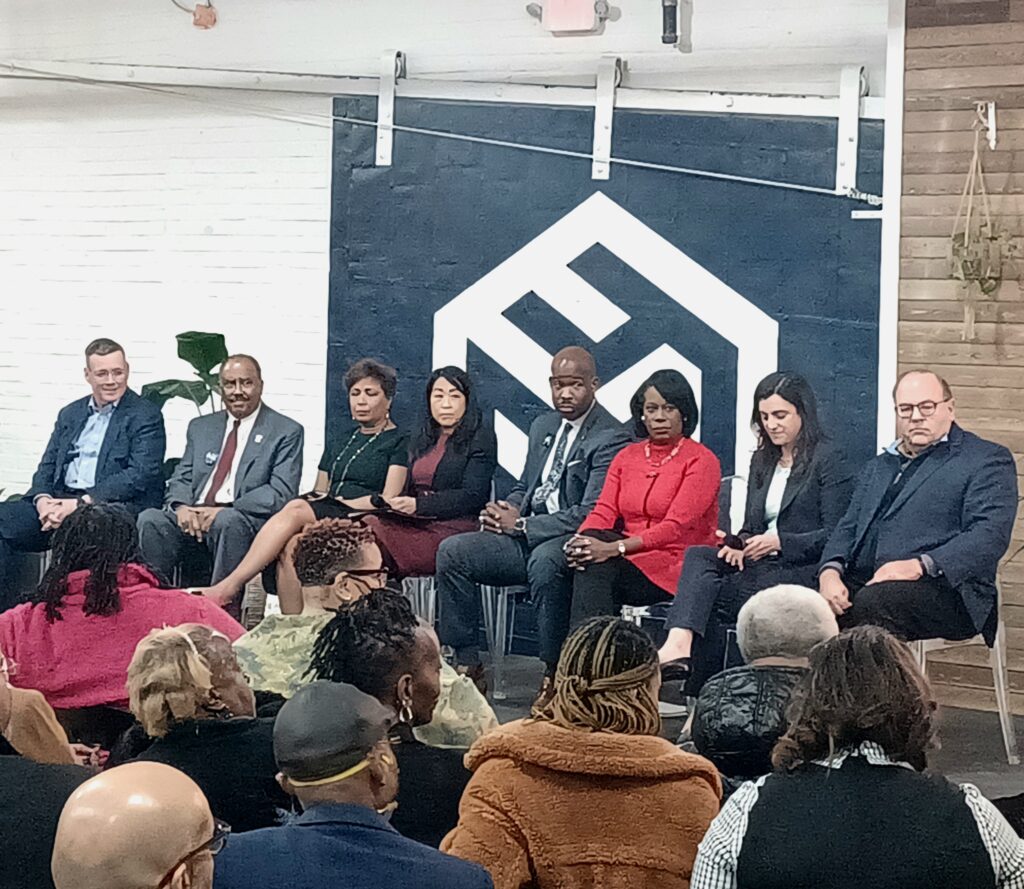Why Philanthropy Can’t Overlook the Mayoral Primaries
 January 16, 2023
Category: Feature, Featured, Medium, Purpose
January 16, 2023
Category: Feature, Featured, Medium, Purpose
Yesterday was MLK Day, and while most celebrated his leadership and dream, we often overlook the ideals and quotes associated with such celebrations. As philanthropists, we should understand one thing above all else at this moment.
With that in mind, DiverseForce hosted a Wealth & Politics Summit this past Sunday at P4Hub in Germantown. The summit included panel discussions on business and wealth opportunities, an inspiring keynote address by activist and author of “Our Black Year,” Maggie Anderson, and culminated in a “Meet the Candidates Mayoral Forum” that is part of “Every Voice, Every Vote,” a collaborative project of The Lenfest Institute for Journalism with lead support from the William Penn Foundation. This event was designed to bring together the DiverseForce’s network of professionals and entrepreneurs, but was also a community-focused event where foundation and nonprofit leaders could hear firsthand from community members and gain insight into the priorities of mayoral candidates Jeff Brown, James “Jimmy” DeLeon, Allan Domb, Derek Green, Helen Gym, Cherelle Parker, Rebecca Rhynhart, and Maria Quiñones-Sánchez.
Each candidate spent three minutes per question to address policies or programs they have implemented and plan to implement to promote economic justice for Philadelphia’s Black and brown communities. However, while access to government contracts, inclusion, and lowering taxes and fees for small minority businesses were the focus, not much time was devoted to the factors that impact this disparity. Inequalities such as gun violence, education, and workforce development that can’t be overlooked this election and have led to circumstances of economic injustice.
Jeff Brown did point to his training program and his non-profit organization Uplift Solutions. He also mentioned his gun buyback program, which has received 10,000 guns in the last 20 years, but there was no discussion of the impact it has had on Philadelphia’s growing gun violence problem.
Cherelle Parker, who energized the crowd with each of her responses, talked about her plan for community policing, which calls for 300 additional police officers to proactively engage in the community daily, not just responding to crisis. Her hope, to create safe business corridors in our communities. But in a city still recovering from the civil unrest, how will this concept be received by the public and what impact will it actually have?
Three minutes will never be enough to explain how to overcome years of systemic disinvestment, so this primary election season will be critical for the philanthropic sector in Philadelphia. The number of candidates is large and growing, and there are a number of well-meaning individuals with varying levels of experience who will divide the electorate. This division will allow one candidate to win the primary with only a small percentage, a percentage that may not be representative of the Philadelphia community and its needs.
As more organizations host community-based forums and events, there will be an opportunity to connect with those you support, and understand their needs and questions. An opportunity to understand where each candidate stands on key issues like gun violence or on the issues your foundation or nonprofit is focused on. An opportunity to challenge them to make a real commitment to underserved people in Philadelphia, because where they fall short, philanthropy will have to step in and become necessary.
Trending News











